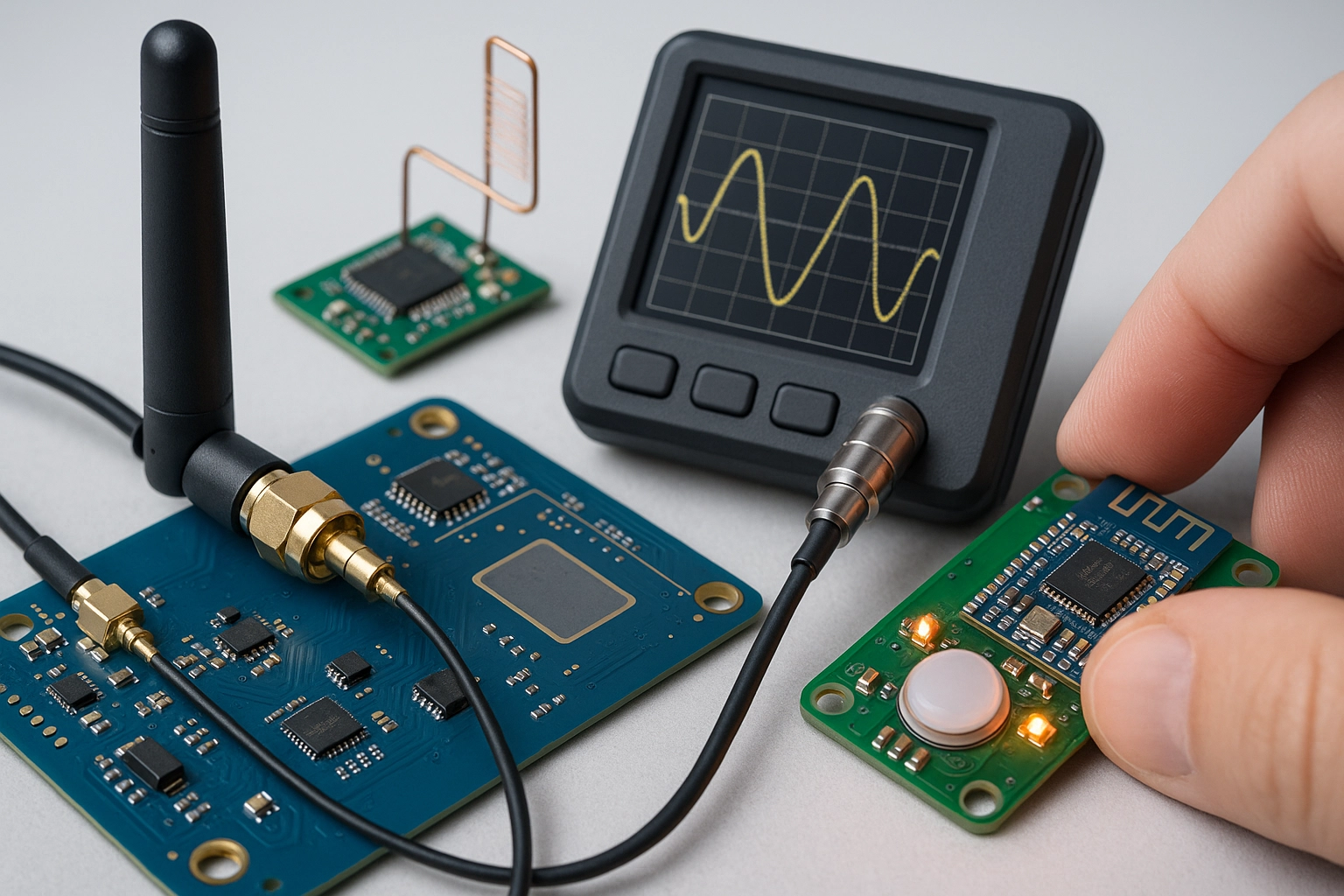MIL STD 461 RS105 Wireless Radiated Susceptibility Testing
The MIL-STD-461 RS105 test is a critical component of ensuring the robustness and reliability of electronic systems in the automotive sector. This standard aims to evaluate how well an electronic system can handle electromagnetic interference (EMI) without failure or degradation of performance. Automotive components, including those used in infotainment systems, navigation devices, and advanced driver assistance systems (ADAS), are particularly susceptible to radiated emissions from surrounding sources.
The test involves exposing the device under test (DUT) to controlled electromagnetic fields within specific frequency ranges. The aim is to simulate real-world conditions where the DUT might encounter interference from other electronic devices or environmental factors such as power lines, radio transmitters, and other vehicles. By subjecting the device to these controlled environments, engineers can identify potential weaknesses in the system's design that could lead to malfunctions.
The RS105 test is particularly important for ensuring the safety and functionality of automotive systems. It helps manufacturers meet regulatory requirements and ensures that their products perform reliably across various environments. This testing process is not just about compliance; it's about enhancing the overall quality and performance of automotive components, thereby improving driving safety.
The standard specifies detailed procedures for conducting radiated susceptibility tests in both laboratory settings and real-world conditions. It covers a wide range of frequencies, including those used by modern wireless communication technologies like Bluetooth, Wi-Fi, and cellular networks. The test setup typically includes an anechoic chamber or a similar facility that can generate controlled electromagnetic fields.
In addition to the technical aspects, the RS105 test also involves careful preparation of the DUT. This includes ensuring that all external connections are properly secured, grounding is adequate, and any shielding present in the system is accounted for during testing. The results of this test are critical for identifying which parts of the system need improvement or additional shielding to withstand real-world interference.
The data collected from these tests is analyzed using various criteria set forth by MIL-STD-461 RS105. These include peak field strength, frequency bands tested, and the overall performance of the DUT under specified conditions. Compliance with this standard ensures that automotive systems are robust enough to function correctly in complex environments, contributing significantly to the safety and reliability of modern vehicles.
Industry Applications
The MIL-STD-461 RS105 test is widely used across various sectors within the automotive industry. One key area is the development and testing of electronic control units (ECUs), which manage critical functions such as engine control, braking systems, and other safety features. Ensuring that these ECUs can operate effectively in the presence of electromagnetic interference is crucial for maintaining vehicle performance and safety.
In addition to ECUs, this test is also vital for infotainment systems. As vehicles become more connected with advanced audiovisual capabilities, ensuring that these systems are immune to external EMI becomes essential. This prevents issues such as disrupted sound quality or lost connectivity during critical moments, enhancing the overall user experience.
ADAS systems, including radar and camera-based sensors, also benefit significantly from this testing. These systems rely heavily on reliable wireless communication to function correctly, making susceptibility to interference a major concern. By adhering to MIL-STD-461 RS105 standards, manufacturers can ensure that their ADAS systems operate consistently across different environments, improving driving safety.
Furthermore, the test is crucial for ensuring compliance with international regulations and standards. Many countries have specific requirements regarding electromagnetic interference in automotive products, and adherence to MIL-STD-461 RS105 helps manufacturers meet these global standards. This ensures that vehicles can be sold internationally without additional modifications or certifications.
Why Choose This Test
- The test is a mandatory requirement for compliance with MIL-STD-461 RS105, ensuring that automotive systems meet stringent quality and safety standards.
- It provides a comprehensive evaluation of how well electronic components can function in the presence of electromagnetic interference.
- The test helps identify potential weaknesses in system design early in the development process, allowing for timely improvements.
- By adhering to this standard, manufacturers can ensure that their products perform reliably across various environments, contributing significantly to driving safety.
The RS105 test is not just about compliance; it's a vital tool for enhancing product quality and reliability. By conducting rigorous testing in controlled conditions, manufacturers can identify and address issues before they become critical problems during real-world operation.
Use Cases and Application Examples
| Test Case | Description | Expected Outcome |
|---|---|---|
| ECU Radiated Susceptibility Test | The ECU is subjected to controlled electromagnetic fields within the specified frequency ranges. | The ECU should continue to function correctly and not exhibit any anomalies or malfunctions. |
| Infotainment System Compliance Testing | The infotainment system's audio quality and connectivity are evaluated under various interference conditions. | The system should maintain consistent performance, ensuring uninterrupted service. |
| ADAS Sensor Interference Test | Radar and camera-based sensors are tested for their ability to operate correctly in the presence of external interference. | The sensors should provide accurate data even when subjected to strong electromagnetic fields. |
- Compliance with International Regulations: Ensures that automotive products meet global standards and can be sold internationally without additional modifications or certifications.
- Enhanced Product Reliability: Identifies potential weaknesses in system design early, allowing for timely improvements and ensuring reliable performance across various environments.
The RS105 test is a critical tool for manufacturers looking to ensure the reliability and safety of their automotive products. By subjecting electronic components to controlled electromagnetic fields, this test helps identify and address potential issues before they become critical problems during real-world operation.





